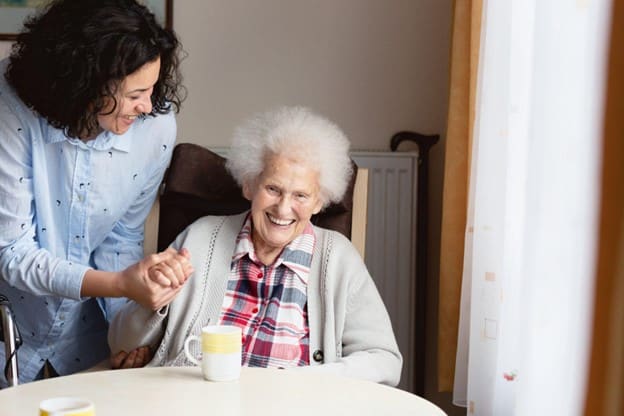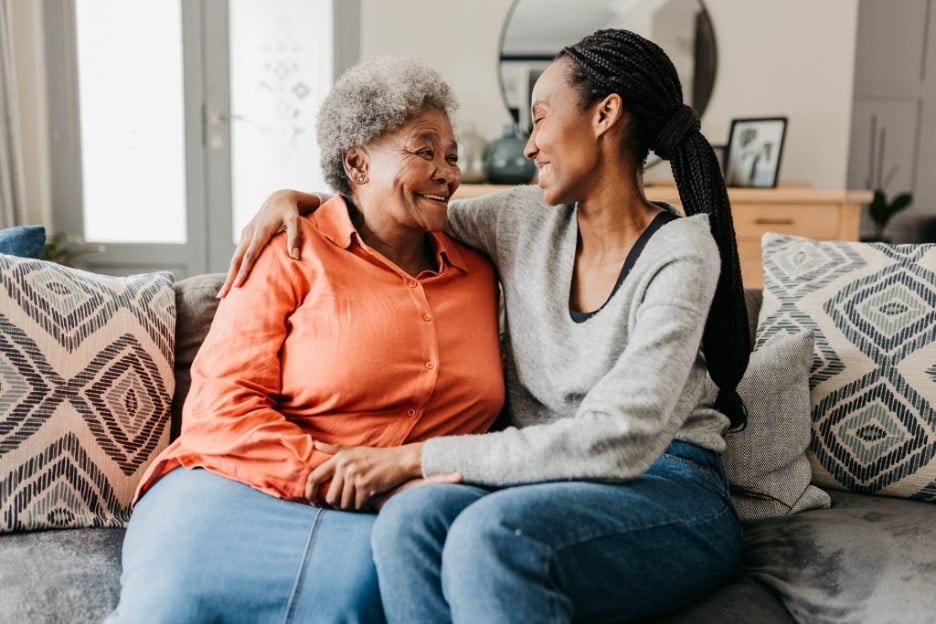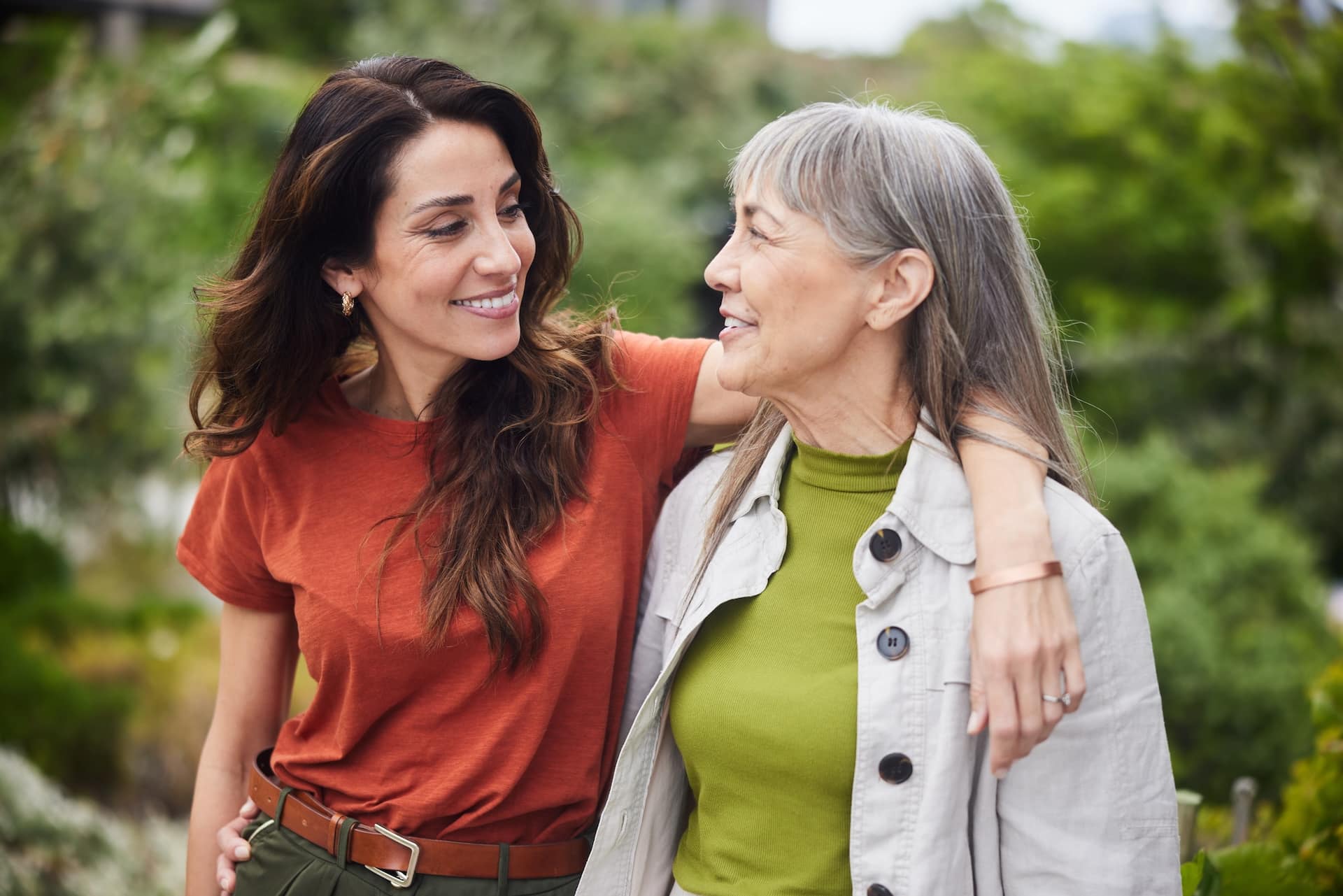Find Tailored Senior Care: Evaluating ADLs vs. IDALs

A Quick Guide by Debbie Walker, Chief Wellness Officer at Cascade Living Group
As Chief Wellness Officer at Cascade Living Group, I remain dedicated to providing high-quality resources for those seeking exceptional senior living. This blog continues our expert series as we delve deeper into Activities of Daily Living (ADLs) and Instrumental Activities of Daily Living (IADLs).
A thorough understanding of these concepts is essential for seniors and their family members. Read on, as I break down the details and explain how gaining clarity around ADLs and IADLs can help you tailor support strategies to promote independence, well-being, and overall quality of life for you or a loved one.
Key Takeaways:
- ADLs (Activities of Daily Living) encompass basic self-care tasks essential for maintaining independence.
- IADLs (Instrumental Activities of Daily Living) involve the more complex skills that allow us to live independently within a community.
- Assessing ADLs and IADLs provides valuable insights for creating tailored care plans that promote safety, well-being, and maximum autonomy for seniors.
- Timely evaluation and proactive support with ADLs/IADLs can significantly improve quality of life for older adults.
What’s the Difference Between ADLs and IADLs?
Maintaining independence as we age is a vital part of healthy living. That’s why understanding Activities of Daily Living (ADLs) and Instrumental Activities of Daily Living (IADLs) is so important.
ADLs are basic self-care activities that enable us to take care of ourselves. Think of tasks like bathing, dressing, eating, and using the bathroom. IADLs are more complex. They let us live independently in the community, encompassing tasks such as managing finances, preparing meals, taking medications correctly, and using transportation.
Mastering the Basics: A Closer Look at ADLs
Activities of Daily Living, or ADLs, are everyday personal care activities to maintain one’s health and functioning.
The Katz Index of Independence in Activities of Daily Living [BR1] [TF2] is one of the most widely used ADL assessment tools. It helps healthcare providers and caregivers obtain a clear picture of a senior’s functional abilities. Using the Katz index, we can break them down into six BADLs (basic activities of daily living):
1. Bathing/Showering
This measures the ability to keep ourselves clean and maintain good hygiene. Tasks can include things such as brushing teeth, maintaining vision and hearing devices, nail care, combing or styling hair, and shaving.
2. Dressing
This means choosing appropriate clothes for the day and putting them on independently. This includes the ability to take on and off accessories, shoes, garments, slings, and prosthetics.
3. Transferring
This measures the ability to move safely by sitting, standing, and getting into or out of bed or a chair without an adaptive device. This also includes the ability to safely navigate essential rooms of your home, like the bathroom and kitchen.
4. Toileting
This includes the process of preparing for the use of the toilet such as gathering supplies, adjustment of garments or undergarments, using assistive devices such as a urinal, or medical devices such as a catheter.
5. Continence
This measurement on the Katz Index determines whether or not a senior has the ability to control their bladder and bowel movements.
6. Eating
This includes cooking, eating without assistance, using utensils, and cutting food if needed.
For each ADL, the senior receives a score of either 1 (independent) or 0 (dependent). The total score gives an indication of their overall level of independence. Lower scores suggest a greater need for assistance with daily tasks. The Katz Index is valuable because it’s both simple to use and provides essential insights to guide care planning.
Beyond the Basics: The World of IADLs
Instrumental Activities of Daily Living, or IADLs, are tasks that are routinely done at home or in the community, and are necessary to maintain a healthy living environment. They’re more complex in nature than personal care or IADLs.
While IADLs aren’t needed for basic survival like ADLs, they’re just as important for maintaining quality of life.
The Lawton Instrumental Activities of Daily Living Scale [BR3] [TF4] is a commonly used tool to evaluate a senior’s ability to live independently within a community. Here’s a breakdown of what it covers:
- Managing Finances: Handling your own money – paying bills, budgeting, and making wise financial decisions.
- Transportation: The ability to get around, whether that’s driving your own car, navigating public transport, or using ride-share services.
- Shopping: Taking care of those essentials – groceries, clothes, medications, and anything else needed for daily life.
- Meal Preparation: Cooking healthy and safe meals for yourself.
- Housekeeping: Keeping your living space clean and tidy – light housework, laundry, etc.
- Communication: Staying connected through phone calls, email, letters, or even navigating social media.
- Medication Management: The ability to take the prescribed medications at the right time and in the right dosages.
- Health Management: Scheduling doctor’s appointments and proactively managing your own healthcare needs.
IADLS and The Connection to Brain Health
IADLs often demand more complex thinking skills – planning, organization, multitasking, and problem-solving. As these cognitive abilities start to decline, even subtly, seniors may need help with everyday tasks that once came easily. That’s why regular IADL assessments can act as a sort of “early warning system.”
Other Assessment Tools for ADLs and IADLs
The Katz Index and the Lawton IADL Scale are valuable tools, but they’re not the only assessment tools out there. Healthcare professionals sometimes use other options to get an even clearer picture of a senior’s abilities and needs. Let’s take a quick look at a few:
Klein-Bell Scale (K-B Scale)[BR5] [TF6]
This assessment focuses on both ADLs and mobility. It’s often used in settings like hospitals or care facilities to get a snapshot of a resident’s overall functioning.
Cleveland Scale for Activities of Daily Living (CSADL)
The CSADL takes a unique approach, assessing ADLs alongside cognitive function (thinking abilities). This helps understand how potential memory or problem-solving issues might be impacting daily life.
Bristol Activities of Daily Living Scale (BADLS)
The Bristol Activities of Daily Living Scale focuses on individuals with dementia. It evaluates a combination of ADLs and IADLs, such as continence, mobility, and the ability to handle finances, creating a broader view of their needs.
Barthel Index
The Barthel Index offers a general measure of independence in both ADLs and mobility-related tasks. It’s helpful for getting a quick baseline and tracking changes in function over time.
It’s important to remember: The right assessment tool depends on the individual and their specific situation. Healthcare providers choose the ones that will give them the most valuable insights for personalized care planning.
Tailoring Care: Using ADL and IADL Insights
When healthcare providers or caregivers assess ADLs and IADLs, they’re not just collecting scores. They’re figuring out a senior’s specific strengths and areas where additional help might be needed.
Regularly assessing ADLs and IADLs, combined with proactive planning, can significantly improve a senior’s quality of life.
When an individual faces challenges in managing their ADLs, it’s essential for them to undergo evaluation by a healthcare professional. In some cases, addressing underlying medical conditions can lead to improved capabilities. Furthermore, the healthcare provider may recommend therapies aimed at enhancing personal care skills, along with suggesting adaptive equipment to foster independence. Additional resources such as homecare, agencies, assisted living communities, or skilled rehabilitation services may also be necessary.

Building Your Care Plan Together: Cascade Senior Living Group Is on Your Team
Life at a Cascade Living Group community reflects the familiarity of living at home. Support with Activities of Daily Living (ADLs) is tailored to your individual requirements as you engage in your daily routine within our community.
The care and services offered at Cascade Living Group communities are tailored to each individual’s abilities. We offer assistance when required while also supporting residents in maintaining as much independence as possible.
Our wellness team collaborates with you, your support persons, and healthcare team to customize a service plan based on your needs and preferences. Find a Cascade Living Group community to schedule a tour and discover the personalized care that awaits you or your loved one.


